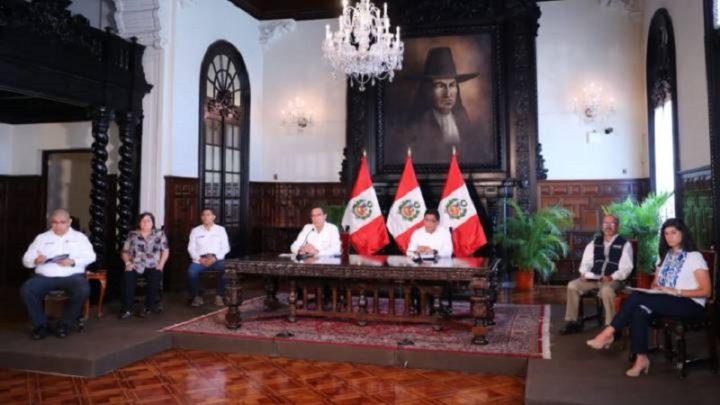By Madeleine John
Only two weeks ago the state was synonymous with bureaucracy, inefficiency, and corruption. With all the last presidents in prison under house arrest, with extradition orders or suicides, the disbelief in the political class was total. Last year, the population was clamoring for the closure of a congress that was hindering any measure thinking of taking advantage of the next elections. The closure of the congress was mostly applauded. Only arbitrariness and corruption were expected from the police.
The unspoken slogan was: “Only private enterprise will save Peru” and everyone lived locked in their dreams of individual success.
What happened in these last 10 days?
The first case of coronavirus infection arrived. On March 11, classes were suspended in schools, colleges and universities. The next day the borders were closed, then it was announced that air, sea, and land transport would be shut down throughout the country. New measures were taken on a daily basis. The situation was accelerating rapidly. First any meeting with more than 300 people was banned and a week later we are in mandatory social confinement and curfew from 8pm to 5pm. All establishments were closed except for hospitals, pharmacies, media and supply centers. A state of emergency was established with the suspension of guarantees and the police and military were patrolling and in charge of implementing the government’s measures.
Ten days later, the president has 87% approval and the vast majority of Peruvians feel committed to the direction he is taking. What produced this in such a short time?
We feel that suddenly the priorities changed and the resources of the state were redirected to care for and protect its population. For example, a bond of approximately US$120 was allocated to 3 million families in a state of poverty or extreme poverty, which today, Monday the 23rd, began to be collected through the banking system. A curious fact: one member of each family authorized to collect the bond was assigned. The bond will be given to women, except in cases where there is no woman in the family, it will be given to a man. Today it was announced that a voucher will be assigned to people who live on a daily income and cannot go out to work.
Resources were redirected to the health sector in all regions. Only in Lima, a hospital that was about to open in a few months was implemented only for patients with COVID-19 and the Pan American Games sports complex was ready in a few days to accommodate the sick. The Ministry of Health called on private clinics to join in under its coordination. 80,000 telephone lines are being implemented for all types of medical care.
The government also arranged for the rescheduling of mortgages, credit cards and all kinds of debts to the financial system without delays or fines.
The speed of the executive’s response has been surprising. The Minister of Education announced for this week the implementation of education programs from pre-school, primary and secondary in its virtual platforms, the state television channel and National Radio in Spanish, Quechua, Aymara and 14 Amazonian languages. As the minister said: “We will try to take advantage of this difficult situation as an opportunity to rethink the way we educate”.
Every day we have the president with his ministers in a televised press conference collecting the concerns of the population. “Mr. President, they are speculating on food prices. The next day he explains that they are developing a rule to control and prevent speculation that includes the crime of speculation. The law of supply and demand and of the free market was left behind. Through the application “Agrochatea” and “Mi Caserita” the Ministry of Agriculture informs daily about the prices in the markets.
The police and the military have a clear mandate to avoid any social costs. Even when a group of desperate people attack them, they must respond calmly and prudently, explaining and supporting them.
In his daily messages, the president calls for solidarity, for thinking of the other, for taking care of each other. He also points out the negative behaviors of vivacity, exploitation, irresponsibility, noting the negative consequences for everyone. And, curiously enough, many people retreat from their compulsive action and join this wave of feelings towards the collective.
The first case of coronavirus surprised us in Peru with 3 million families registered in a state of poverty and extreme poverty, with 3 million people in the peripheral areas of Lima without access to drinking water, with a poor and overcrowded health system, with forgotten communities, with everyone elbowing their way through. Only 10 days have passed. Nothing will be the same anymore. Everyone is important and everyone can contribute.










